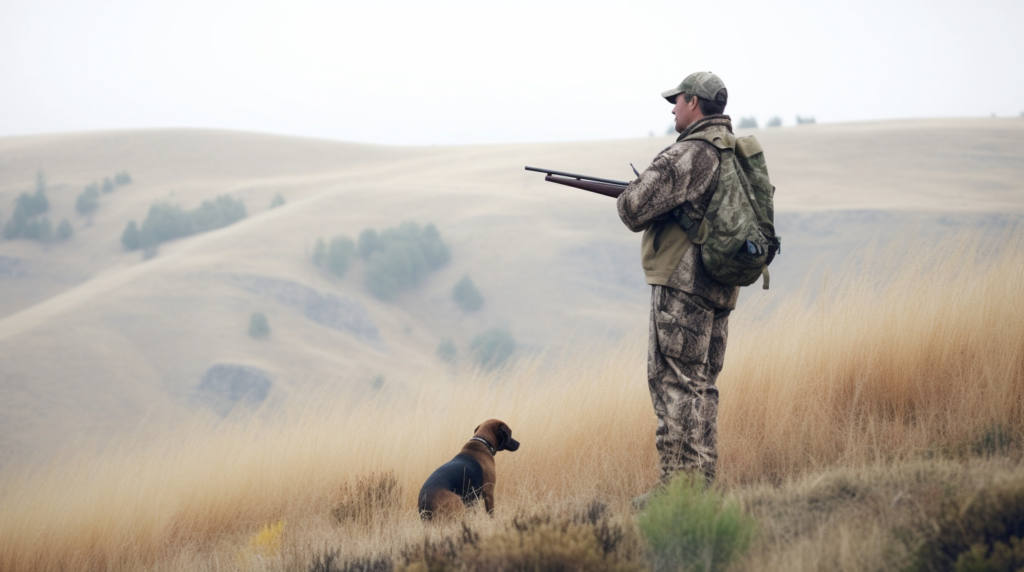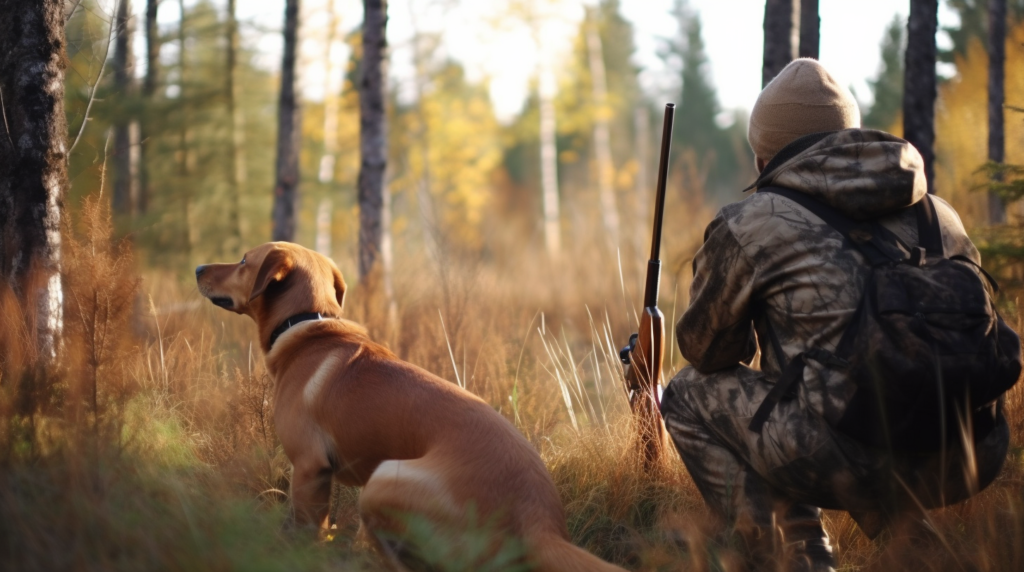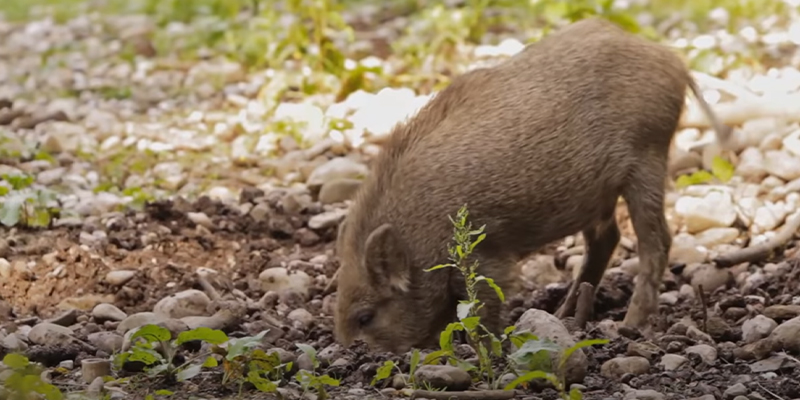Hunting has been a part of human life since ancient times. While it used to be essential for survival, nowadays, hunting is mostly done as a recreational activity. However, hunting has also been a topic of controversy and debate for decades, especially when it comes to its ethics. On one hand, hunting advocates argue that hunting can be a necessary tool for wildlife conservation and management, while on the other hand, animal rights activists believe that hunting is cruel and inhumane. In this article, we will explore the pros and cons of hunting and its ethical implications.
Introduction
In this section, we will provide an overview of the topic and the importance of discussing the ethics of hunting. We will also introduce the main arguments of both hunting advocates and animal rights activists.
The Pros of Hunting

We will discuss the arguments of hunting advocates who believe that hunting can be a useful tool for wildlife conservation and management. We will explore how hunting can help control animal populations, prevent overgrazing, and fund conservation efforts. We will also discuss the benefits of hunting for local economies and tourism.
Controlling Animal Populations
By selectively targeting specific animals, hunters can help manage wildlife populations, ensuring that resources are not depleted beyond the environment’s carrying capacity. Overpopulation can lead to food scarcity, disease outbreaks, and damage to ecosystems, jeopardizing the well-being of both wildlife and humans.
In addition, regulated hunting programs provide funding for conservation efforts. Revenue generated from hunting licenses and fees goes towards habitat preservation, wildlife research, and maintaining protected areas. This financial support plays a vital role in safeguarding natural habitats and promoting sustainable practices.
When done ethically and within established guidelines, hunting can be an effective tool for wildlife management and conservation. It allows for the preservation of biodiversity and the protection of delicate ecosystems, contributing to the long-term sustainability of our natural world.
Preventing Overgrazing
Overgrazing occurs when herbivores consume vegetation beyond the capacity of the land to regenerate. This leads to the degradation of ecosystems, soil erosion, and a decline in biodiversity. Hunting can act as a natural mechanism to control the population sizes of herbivores, ensuring that grazing remains within sustainable limits.
By selectively harvesting specific animals, hunters help prevent overgrazing by reducing the pressure on vegetation. This intervention allows plant life to regenerate, ensuring a continuous food supply for herbivores and other wildlife species. The result is a healthier ecosystem that can support a more diverse array of plants and animals.
Moreover, hunting can provide economic incentives for landowners to manage their properties responsibly. Through hunting permits and fees, revenue is generated, which can be invested in land conservation, habitat restoration, and implementing sustainable land management practices.
When conducted ethically and in adherence to regulations, hunting can be an effective tool in preventing overgrazing. It promotes the long-term health of ecosystems, safeguards biodiversity, and fosters sustainable land use practices, ensuring the preservation of our natural heritage.
Funding Conservation Efforts
The funds generated from hunting licenses, permits, and fees play a crucial role in supporting conservation projects. These financial resources are allocated towards activities such as habitat preservation, wildlife research, anti-poaching measures, and the establishment and maintenance of protected areas. The revenue generated through hunting can be a vital source of funding, especially in regions where conservation budgets are limited.
Furthermore, hunting programs incentivize the conservation and management of wildlife populations. By implementing regulations and quotas, hunting helps ensure sustainable practices that maintain healthy population levels. This approach safeguards biodiversity, prevents overpopulation, and helps maintain the ecological balance within ecosystems.
In addition, hunting can foster a sense of stewardship among hunters. Many hunting organizations actively promote conservation education and ethical hunting practices, instilling a deep respect for nature and the importance of preserving wildlife habitats.
While the topic of hunting remains contentious, it is clear that when properly regulated and managed, hunting can provide crucial financial support for conservation efforts. By channeling funds towards conservation initiatives, hunting contributes to the protection of wildlife and the preservation of our natural heritage for future generations.
Benefits for Local Economies and Tourism
Hunting activities create employment opportunities, supporting outfitters, guides, and hunting lodges. These businesses provide services such as equipment rental, lodging, transportation, and meals, which directly contribute to the local economy. Additionally, the associated supply chain, including retail stores and restaurants, benefits from increased demand during hunting seasons.
Furthermore, hunting can attract tourists from near and far, boosting the tourism industry. Hunting enthusiasts often travel to explore new hunting grounds and experience the thrill of pursuing game in different regions. This influx of visitors leads to increased spending on accommodations, dining, transportation, and other local attractions, benefiting hotels, restaurants, shops, and recreational activities.
Local governments also benefit from hunting through the collection of hunting licenses, permits, and taxes. The revenue generated can be reinvested in infrastructure development, conservation efforts, and community services, improving the quality of life for residents.
While opinions on hunting may vary, its positive impact on local economies and tourism cannot be denied. When conducted responsibly, hunting contributes to job creation, revenue generation, and increased tourism, providing economic opportunities and supporting the growth of rural communities.
The Cons of Hunting

In this section, we will discuss the arguments of animal rights activists who believe that hunting is cruel and inhumane. We will explore how hunting can cause animal suffering and the ethical implications of killing animals for sport.
Animal Suffering
Animals targeted by hunters often endure prolonged suffering. The use of firearms, bows, or traps can result in wounds that are not immediately fatal, subjecting animals to prolonged agony. Moreover, hunting can disrupt the social dynamics of animal communities, leaving orphaned offspring vulnerable to starvation and predation.
There is also the concern of fair chase. In some instances, hunters use techniques such as baiting, hounding, or shooting from a distance to secure kills, which raises questions about the fairness and ethics of the practice.
While regulations and guidelines aim to minimize suffering, instances of wounded animals escaping and dying slowly remain a distressing reality of hunting.
As our understanding of animal welfare deepens, the ethical implications of hunting’s impact on animal suffering cannot be overlooked. Alternative methods of wildlife management that prioritize non-lethal approaches should be explored, ensuring that conservation efforts and population control are achieved without unnecessary pain and suffering.
Killing Animals for Sport
In the pursuit of trophies or personal satisfaction, some hunters prioritize the thrill of the kill over genuine necessity or sustenance. This approach raises ethical questions about the moral value of intentionally ending an animal’s life for personal gratification.
Moreover, the concept of fair chase is often called into question. The use of high-powered rifles, advanced hunting technologies, and enclosed hunting preserves can tilt the balance heavily in favor of the hunter, potentially undermining the principles of fairness and respect for wildlife.
Critics argue that killing animals solely for sport goes against our evolving understanding of animal welfare and the inherent value of all living beings. Advocates for conservation and animal rights emphasize the importance of promoting non-lethal forms of wildlife appreciation and conservation, focusing on ethical and sustainable practices that prioritize the well-being of animals.
While hunting can have valid arguments for its place in wildlife management, the act of killing animals for sport remains a significant ethical concern. Encouraging alternative forms of engagement with wildlife that respect their intrinsic value and promote their well-being is crucial for a more compassionate approach to conservation.
The Ethics of Hunting

In this section, we will discuss the ethical implications of hunting and how it can be viewed differently based on cultural, social, and personal beliefs. We will explore how hunting can be seen as a necessary tool for some, while others consider it cruel and unnecessary.
Cultural and Social Beliefs
The ethics surrounding hunting are deeply rooted in cultural and social beliefs, with diverse perspectives shaping our understanding of this controversial practice. Cultural and societal contexts heavily influence the perception of hunting, making it a complex and nuanced ethical issue.
For many indigenous and traditional communities, hunting holds significant cultural, spiritual, and subsistence value. These communities view hunting as an integral part of their identity, passed down through generations as a means of sustenance and connection to the natural world. For them, hunting is deeply embedded in their cultural heritage and traditional practices.
Conversely, in modern urban societies, hunting is often met with skepticism and criticism. Animal welfare concerns, shifting attitudes towards animals as sentient beings, and the availability of alternative food sources contribute to the ethical debate surrounding hunting. Many argue that hunting for sport or personal pleasure contradicts evolving ethical values that prioritize minimizing harm and promoting the well-being of animals.
The clash of cultural and social beliefs highlights the need for respectful dialogue and understanding. Recognizing and respecting diverse perspectives can foster a more inclusive and nuanced conversation about the ethics of hunting. It is essential to consider the impacts on animal welfare, ecological balance, and cultural traditions when assessing the ethical implications of hunting practices.
Personal Beliefs
The ethics of hunting are profoundly influenced by personal beliefs, with individuals forming their own perspectives on this contentious practice. Personal values, experiences, and moral compasses shape one’s stance on hunting, making it a highly subjective and complex matter.
Some individuals view hunting as a means of connecting with nature, embracing a responsible and sustainable approach to obtaining food. They argue that engaging in the process of hunting allows for a deeper understanding and appreciation of the natural world, fostering a sense of self-sufficiency and environmental awareness.
On the other hand, many people hold strong opposition to hunting, driven by their personal beliefs about animal rights and the inherent value of all living beings. They perceive hunting as an unnecessary and unethical act, asserting that alternatives such as plant-based diets and conservation efforts should be prioritized to protect wildlife populations and promote compassionate values.
Navigating the ethics of hunting requires respectful dialogue and consideration of diverse perspectives. Recognizing that personal beliefs play a significant role in shaping ethical stances on hunting allows for constructive conversations that promote understanding and empathy.
Ultimately, the ethics of hunting are deeply personal and reflective of individual values and experiences. It is important to engage in open and respectful discussions that encourage critical thinking and empathy towards differing viewpoints, fostering a more holistic understanding of the complex ethical considerations surrounding hunting.
Conclusion

In this section, we will summarize the main points of the article and provide our own perspective on the ethics of hunting. We will encourage readers to form their own
Based on the arguments presented, it is clear that the ethics of hunting is a complex and multifaceted issue. While hunting can have benefits for wildlife conservation and management, it can also cause animal suffering and ethical dilemmas. Ultimately, the decision to hunt or not is a personal choice that should be informed by one’s values and beliefs.
However, it is important to note that hunting should be done responsibly and ethically. This includes following hunting regulations and guidelines, using proper hunting equipment and techniques, and minimizing animal suffering. It is also important to respect the animals being hunted and their role in the ecosystem.
In conclusion, the ethics of hunting is a topic that continues to spark debate and controversy. While hunting can have benefits for wildlife conservation and local economies, it can also cause animal suffering and ethical dilemmas. It is important to consider both sides of the argument and make informed decisions based on personal values and beliefs.
FAQs

- Is hunting necessary for wildlife conservation?
While hunting can be a useful tool for wildlife conservation and management, it is not the only option. There are other methods, such as habitat conservation and non-lethal wildlife management, that can be used to maintain healthy and sustainable ecosystems.
- How can hunting be done ethically?
Hunting can be done ethically by following hunting regulations and guidelines, using proper hunting equipment and techniques, and minimizing animal suffering.
- Is hunting for sport ethical?
The ethics of hunting for sport is a matter of personal opinion and values. Some people believe that killing animals for sport is unethical, while others see it as a legitimate form of recreation.
- Does hunting benefit local economies?
Hunting can have economic benefits for local communities, such as creating jobs and bringing in tourism revenue. However, these benefits should be balanced with the ethical considerations of hunting.
- Can hunting be a sustainable practice?
Hunting can be a sustainable practice if it is done responsibly and in accordance with wildlife management principles. This includes monitoring animal populations, using selective harvest methods, and minimizing waste.



One Reply to “The Ethics of Hunting: Debating the Pros and Cons”
Comments are closed.